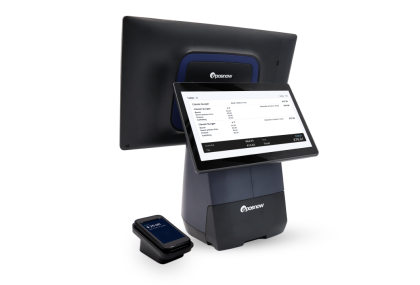Restaurant Employees: Roles, Responsibilities, and Hiring Tips
Welcome to the delicious world of restaurant employees! Have you ever wondered what it takes to run a fine dining restaurant, or what goes on behind the scenes in the restaurant business? Well, look no further because we're about to dish out some tasty insights on the roles, responsibilities, and hiring tips for restaurant employees!
Whether you're an executive chef looking to build your dream team, a food and beverage manager trying to improve your recruitment process, or a curious foodie wanting to learn more about the people who make your dining experiences possible, this article is for you. We'll cover everything from the front-of-house to the back-of-house, exploring the skills and traits that make an ideal restaurant employee and giving you practical tips for hiring and retaining top talent.
So get ready to sink your teeth into some mouth-watering information, and let's start by exploring restaurant workers' different roles and responsibilities. From chefs to servers, bussers to dishwashers, a lot goes into ensuring every meal is a culinary masterpiece. Let's go!
What's on the menu for restaurant employees?
If you've ever dined out, you know that the front-of-house staff are the ones who welcome you with a smile, take your order, and make sure you have everything you need. But did you know that there are also back-of-house staff who are responsible for preparing and cooking your food, as well as cleaning up after you're done? Let's take a closer look at the different positions and responsibilities of restaurant workers:
Front-of house roles and responsibilities
1. Host/hostess
The host or hostess is usually the first person you'll see when you walk into a restaurant. Their job is to greet you, find out how many people are in your party and guide you to your table. They're also responsible for managing the waitlist, answering phone calls, and ensuring that guests have a pleasant experience from start to finish.
2. Server
Servers are the ones who take your order, bring you food and drinks, and check in to make sure everything is to your liking. They need to be knowledgeable about the menu, able to make recommendations, and skilled in customer service. A good server can make or break your dining experience!
3. Bartender
If you're sitting at the bar or ordering drinks, you'll interact with the bartender. Bartenders are responsible for mixing and serving alcoholic and non-alcoholic drinks and keeping the bar area clean and well-stocked. They also need to be able to handle cash and credit card transactions and maintain a friendly attitude even during busy times.
4. Busser
Bussers are responsible for clearing tables, resetting them for the next guests, and keeping the dining room clean and tidy. They may also be responsible for bringing bread, water, and other items to the table. While bussing may seem like a simple job, it's an essential part of the dining experience.
Back-of-house roles and responsibilities
1. Executive chef (aka the head chef)
The executive chef is the head of the kitchen. They're responsible for creating the menu, overseeing the preparation and cooking of food, and ensuring that every dish meets the restaurant's standards for quality and presentation. They need to be skilled in recipe development, menu planning, and kitchen management, as well as have a keen palate and attention to detail.
2. Line cook
Line cooks are the ones who actually prepare and cook the food, following the recipes and instructions provided by the chef. They need to be skilled in various cooking techniques, as well as be able to work quickly and efficiently during busy times.
3. Dishwasher
While not the most glamorous job, the dishwasher is a crucial back-of-house team member. They're responsible for washing and sanitizing dishes, utensils, and kitchen equipment, as well as keeping the kitchen clean and organized. Without a good dishwasher, the kitchen would quickly become a chaotic mess!
4. Food runner
Food runners are responsible for delivering the finished dishes from the kitchen to the dining room. They must be able to navigate the restaurant quickly and efficiently while ensuring that the food is delivered to the right table at the right time. They also need to be able to communicate effectively with the servers and kitchen staff.
Characteristics of ideal restaurant employees
Let's face it, the hospitality industry can be tough (especially if you work in fine dining restaurants). A busy restaurant is fast-paced, demanding, and requires a lot of hard work. That's why it's essential to have the right people on your team. But what makes an ideal restaurant employee? Well, we're glad you asked! Here are some key characteristics to look for:
Soft skills
Soft skills are the intangible qualities that can make or break an employee's success in the restaurant business. These skills include:
- Good communication: Listening carefully, speaking clearly, and effectively conveying information is essential in any restaurant role.
- Teamwork: Restaurant work is all about collaboration. The ability to work well with others, communicate effectively, and pitch in where needed is a must-have quality.
- Customer service: In the restaurant industry, the customer is king. Ideal restaurant employees are friendly, approachable, and genuinely care about providing a great dining experience and customer satisfaction.
- Time management: Good time management skills are critical in any restaurant role, from keeping track of multiple orders and creating schedules to balancing competing priorities.
Hard skills
In addition to soft skills, there are some hard skills that are essential for success in the restaurant industry. These skills include:
- Culinary skills: For kitchen roles, knowledge of cooking techniques, knife skills, and other culinary fundamentals is a must-have.
- Knowledge of food safety: From proper food storage to safe cooking temperatures, understanding food safety regulations and best practices is essential for all restaurant staff.
- Attention to detail: Whether it's plating a dish or cleaning a kitchen, attention to detail is key to ensuring that everything is done right the first time.
- Ability to multitask: In a busy restaurant environment, the ability to handle multiple tasks at once is critical. Ideal restaurant staff are those who can juggle competing priorities with ease.
By looking for employees with these key characteristics, you can help ensure that your restaurant is staffed with the best of the best. But how do you find and attract these ideal candidates? That's the topic of our next section. So, let's move on to some tips for hiring restaurant employees.

Restaurant POS System
Evolve your hospitality business using the power of POS system technology
Tips for hiring restaurant employees
Now that you know what to look for in an ideal restaurant employee, how do you actually go about finding and hiring them? Here are some tips to help you out:
1. Start with a clear job description
Before you start looking for candidates, make sure you have a clear job description in place. This should include the responsibilities of the role, as well as any specific qualifications or skills that are required.
For example, if you're looking for a sous chef, you'll want to specify that the candidate needs to have several years of experience working in a fine dining restaurant. Or, if you're looking to hire some food and beverage managers for your casual restaurant, you'll want to make sure they have prior experience working in an establishment of similar size and style.
2. Use multiple channels to advertise the job
To reach the widest possible pool of candidates, use multiple channels to advertise the job.
Let's say you're a restaurant owner looking for executive chefs. You could post the job listing on well-known culinary sites like Chef Magazine, or you could even reach out to local cooking schools and ask them to pass along the listing. Some popular channels for recruiting restaurant employees include:
- Local newspapers and magazines
- Professional association job boards
- Social media (Facebook, Twitter, LinkedIn)
- Online job boards (Indeed, Monster)
3. Look for candidates with relevant experience
When evaluating candidates, look for those with relevant experience in the restaurant industry. For example, if you're hiring a food and beverage manager, look for candidates who have experience managing a restaurant or bar. If you're hiring assistant managers, look for candidates who have worked in a similar setting and can handle a busy restaurant environment.
If you don’t get many experienced candidates replying, you may need to look at key transferable soft skills. Candidates with less experience, but great soft skills, may require more training, but they may also bring a great energy, dedication and the drive to learn. Only you can decide where the balance is for your business needs, how you can test for these skills in your interviews, and how much training you can provide! Alternatively, it may be time to go back and refine your job description.
4. Don't skimp on compensation
Ah, compensation! The age-old debate can make or break an employer's chances of securing the best employees. In the restaurant business, where the hours are long, and the work can be grueling, it's especially important to offer fair compensation to attract and retain top talent.
Sure, minimum wage may be the legal requirement, but let's be honest, it's not going to cut the mustard for the most desirable candidates. Think about it: when your employees feel valued and appreciated, they're more likely to go the extra mile for your customers. They're also more likely to stick around for the long haul, reducing turnover costs and keeping the continuity of your team intact.
So, be generous! Offer a competitive salary or hourly wage, with opportunities for bonuses or tips for servers. Consider other perks, like health insurance, paid time off, or a free shift meal. And if you really want to stand out, offer training and development opportunities, like sending your chefs to a culinary school or wine-tasting course.
5. Conduct thorough interviews and skills tests
The interview process is like a blind date, but with the added pressure of trying to find the perfect fit for your restaurant. So, how do you know if a candidate is "the one"? By conducting thorough interviews and skills tests, of course!
First, make sure you have a clear idea of what you're looking for in each role. Are you hiring a line cook who can handle a high-volume kitchen or a server who can handle delicate customer situations at your fast-food restaurant with grace and ease? Once you know what you're looking for, you can tailor your questions and tests to evaluate each candidate's suitability.
For line cooks, consider asking them to demonstrate their knife skills or to prepare a dish on the spot. You can even hold a mock rush hour to see how they handle the pressure of a busy kitchen. For servers, role-playing is a great way to test their customer service skills. Give them a scenario where a customer is unhappy and see how they handle the situation. Do they remain calm and collected, or do they crumble under pressure?
And, of course, don't forget to ask plenty of open-ended questions that will give you insight into each candidate's personality and work ethic. Ask about their experience in the industry, their approach to customer service, and their biggest strengths and weaknesses. You want to get a sense of who they are as a person, not just what they can do.
6. Look for a good cultural fit
Culture is king in the restaurant industry, and finding a good fit for your team is just as important as finding a skilled employee. After all, your restaurant is more than just a place to eat - it's an experience that your customers will remember, and your staff will shape that experience.
So, when you're hiring restaurant staff, look beyond their resume and technical skills. Look for someone who shares your values and who can work well with others. You want to build a team that feels like a family, where everyone is working towards the same goal.
To assess a candidate's personality and work style, consider asking questions that will give you a glimpse into their approach to customer service. For example, you could ask, "How do you handle a difficult customer?" or "Tell me about a time when you went above and beyond for a customer." Look for answers that show empathy, problem-solving skills, and a willingness to go the extra mile.
You'll also want to consider how the candidate fits into your team. Do they seem like they'll get along with their coworkers? Will they work well with your current staff, or do they have a drastically different approach? It's important to balance diversity and cohesiveness, so be mindful of how each candidate will contribute to your restaurant's culture.
How can a restaurant POS system help your employees?
A restaurant POS (point of sale) system can be a game-changer when it comes to improving efficiency and productivity in your restaurant. With a hospitality POS, your employees can take orders, send them to the kitchen, and process payments all in one place. This not only speeds up service but also helps to reduce errors and improve accuracy.
In addition to streamlining day-to-day operations, a restaurant POS system can also provide valuable insights into your business. You can track sales data, monitor inventory levels, and even identify the most popular dishes with customers. This information can help you make informed decisions about menu changes, staffing levels, and more.
Another benefit of using a POS system is that it often comes with built-in payment processing services. This means that your employees can process credit and debit card payments without needing a separate payment terminal, saving time and reducing the risk of errors.
Overall, a restaurant POS system can be a valuable tool for improving your restaurant's operations and empowering your employees to work more efficiently. Consider investing in a POS system to take your restaurant to the next level.
Final thoughts
At the end of the day, the success of any restaurant depends on the quality of its employees. Whether you're hiring an executive chef, a sous chef, a server, or a dishwasher, it's important to take the time to find the right fit for your team.
Remember, offering fair compensation and investing in your employees is crucial to building a strong, motivated workforce. Even if you're only able to offer minimum wage, there are other ways to incentivize your employees, such as offering performance bonuses or opportunities for career growth.
Restaurant owners, you have the power to create a positive workplace culture and build a team that's passionate about providing exceptional service to your customers. So take the time to hire the right people, invest in their training and development, and celebrate their successes along the way.
With the right employees and a commitment to excellence, you can take your restaurant to new heights and achieve long-term success in the competitive world of fine dining. So go out there and find your dream team!
Find out how our hospitality POS software can help your restaurant staff succeed!



